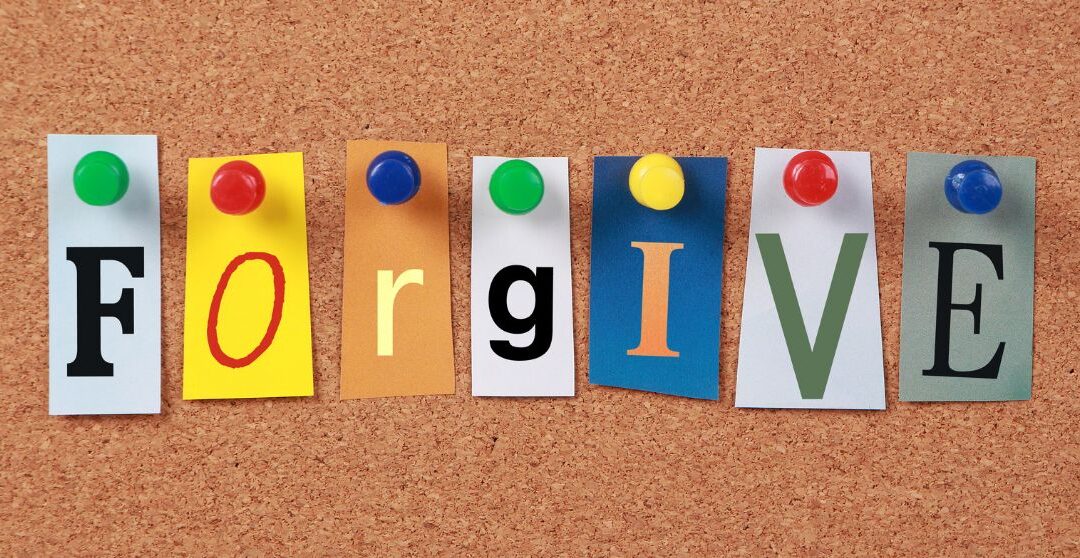Ever find yourself replaying that long-past argument with your colleague? Or stewing over your friend’s snide comment from a few weeks ago? Trust me; you’re not alone. Holding onto anger and hurt can feel justified, but it’s actually doing more harm than you might imagine. Forgiveness, on the other hand, can be a powerful tool for improving your mental and physical health.

Why holding onto anger hurts
When we hold onto anger or resentment, our bodies react as if we’re in constant danger. This state of chronic stress can lead to a host of health problems. Studies have shown that harboring negative emotions can increase the risk of heart disease, weaken the immune system, and even shorten life expectancy. A study published in the Journal of Behavioral Medicine found that unforgiving individuals had higher levels of cortisol, a stress hormone, which is linked to various health issues, including weight gain, mood swings, and cardiovascular problems.
From a psychological perspective, holding onto grudges can keep us stuck in a cycle of negative thinking. It can lead to chronic anxiety, depression, and a decreased ability to enjoy life. Conversely, according to a study by the American Psychological Association, individuals who practice forgiveness report lower levels of anxiety and depression and higher levels of life satisfaction and overall well-being.
The difference between “forgive” and “forget”
Before we continue, I want to discuss something that most other articles don’t address. Granted, it’s my personal perspective on the topic of forgiveness, but I think it’s legitimate…and important.
The adage “forgive and forget” sounds nice, but it’s not entirely practical, natural, or even healthy. Forgiveness is about letting go of the emotional baggage associated with a hurtful event, but it doesn’t mean we should erase the memory of what happened. In fact, our ability to remember past wrongs is part of our evolutionary makeup. It’s what helps us avoid dangerous situations and people.
As mammals (yes, we may have opposable thumbs and language skills, but we’re still mammals), we evolved to remember which berries are poisonous and which areas of the forest house the tigers. This memory function is a survival mechanism. Similarly, remembering past wrongs can protect us from future harm. However, there’s a balance to be struck. Remembering the causal event doesn’t mean holding onto the anger associated with it, or allowing it to control our lives. In an ideal world, we will retain the memory, but release the emotion.
So, how do we do this?

How to practice forgiveness
Believe it or not, just like riding a bike or learning to cook, forgiveness is a skill that can be developed with practice. Here are some practical steps to help you on your journey to letting go:
- Acknowledge your feelings: The first step in forgiveness is to acknowledge the hurt and anger you feel. Denying these emotions won’t make them go away. Allow yourself to feel and express them in a healthy way.
- Empathy and understanding: Try to see the situation from the other person’s perspective. This doesn’t mean you condone their behavior, but understanding their motives can help you let go of your anger.
- Set boundaries: Forgiveness doesn’t mean allowing others to hurt you repeatedly. Set clear boundaries to protect yourself in the future.
- Focus on the present: Holding onto past hurt keeps you stuck in the past. Focus on the present moment and what you can do to improve your current situation.
- Seek professional help: Sometimes, letting go of deep-seated anger and hurt requires professional help. Counseling/therapy can provide you with the tools and support you need to move forward.
- Practice self-compassion: Be kind to yourself. Understand that forgiveness is a process and it’s okay to take your time.

The benefits of forgiveness
Practicing forgiveness can lead to numerous benefits:
Improved mental health
- Reduced anxiety and depression: Forgiveness can significantly lower levels of anxiety and depression. When we forgive, we stop reliving the hurt and start focusing on healing. According to the Journal of Health Psychology, people who forgive tend to experience less stress and greater mental well-being, as forgiveness breaks the cycle of negative thoughts and emotions that fuel anxiety and depression.
- Enhanced emotional regulation: Forgiving someone requires emotional strength and self-regulation. As you practice forgiveness, you build resilience and improve your ability to manage difficult emotions. This leads to a more stable and positive emotional state, reducing the impact of stressors in your daily life.
Better physical health
- Lower blood pressure: Holding onto anger and resentment can cause chronic stress, which is known to elevate blood pressure. Again, going back to the Journal of Behavioral Medicine, a 2020 study found that individuals who practice forgiveness tend to have lower blood pressure, which decreases their risk of heart disease and stroke.
- Stronger immune system: Chronic stress from holding grudges weakens the immune system, making the body more susceptible to illness. Forgiveness has been shown to boost immune function by reducing stress and promoting a state of physical and emotional balance. This means that forgiving others may actually help your body fight off colds and other infections more effectively.

Enhanced relationships
- Better communication: Forgiveness fosters open communication by removing the barriers of anger and resentment. When you forgive, you’re more likely to engage in honest and empathic conversations, which strengthens your relationships. According to research in the Journal of Social and Personal Relationships, forgiveness can lead to more constructive communication and deeper connections with others.
- Increased empathy: By forgiving, you practice seeing situations from the other person’s perspective, which enhances your capacity for empathy. This not only improves your existing relationships but also helps you build new ones. Empathy is a cornerstone of strong, healthy relationships, and forgiveness helps cultivate it.
Increased happiness
- Greater peace of mind: Letting go of grudges frees up mental and emotional space, allowing you to experience greater peace and happiness. Studies published in Psychological Science indicate that people who practice forgiveness report higher levels of life satisfaction and contentment.
- Positive mindset: Forgiveness allows you to shift your focus from negative experiences to positive ones. This shift can help you develop a more optimistic outlook on life, leading to increased happiness and a more fulfilling life overall.
Forgiveness in the workplace
In the business world, forgiveness can be a powerful tool for fostering a positive work environment. According to a study in the Academy of Management Review, workplaces that encourage forgiveness see higher levels of employee satisfaction, reduced turnover, and improved teamwork. Leaders who model forgiveness set a tone of collaboration and resilience, which can lead to a more productive and positive workplace culture.

Forgiveness in your personal life
Forgiveness isn’t just beneficial in the workplace; it plays a crucial role in our personal lives, as well. Here’s how:
Strengthened family bonds
- Healing past wounds: Families tend to have long, often multi-generational histories, and misunderstandings or conflicts can linger for years. Practicing forgiveness within your family can heal old wounds, bringing members closer together and fostering a more supportive environment. When family members forgive each other, it sets the stage for healthier, more loving relationships.
- Modeling positive behavior: When you practice forgiveness with family members, especially in front of children, you model important values like empathy, patience, and resilience. This can have a lasting positive impact on how younger family members handle conflict in their own lives.

Deeper personal connections
- Resilient friendships: All relationships experience ups and downs, and friendships are no exception. Forgiveness allows you to move past conflicts and misunderstandings, strengthening the bond you share with your friends. Studies show that friendships that endure through forgiveness tend to be deeper and more meaningful.
- Increased trust: By forgiving a friend, you demonstrate trust in the relationship and a willingness to move forward. This can lead to increased mutual respect and a stronger foundation of trust, which is essential for any lasting friendship.
Personal growth and self-love
- Letting go of self-blame: Forgiveness isn’t just about others; it’s also about forgiving yourself. We’re often our own harshest critics, holding onto guilt or regret long after we’ve made mistakes. By practicing self-forgiveness, you can release self-blame and move forward with greater self-compassion and acceptance. This, in turn, helps you grow and become a better version of yourself.
- Embracing vulnerability: Forgiveness requires vulnerability – acknowledging your pain and letting it go. By embracing this vulnerability, you open yourself up to personal growth and deeper, more authentic relationships with others. Vulnerability, as Brené Brown points out in her research, is a key component of living a wholehearted life.
Conclusion
So, should the phrase “forgive and forget” be replaced with a much more realistic and health-promoting “remember, but forgive?” I think so. Forgiveness is not about condoning bad behavior or forgetting that it happened. It’s about freeing yourself from the toxic grip of anger and resentment. By practicing forgiveness, you can improve your mental and physical health, strengthen your relationships, and lead a more fulfilling life. So, take a deep breath, let go of that grudge, and make space for peace and happiness. After all, life’s too short to hold onto negativity!


